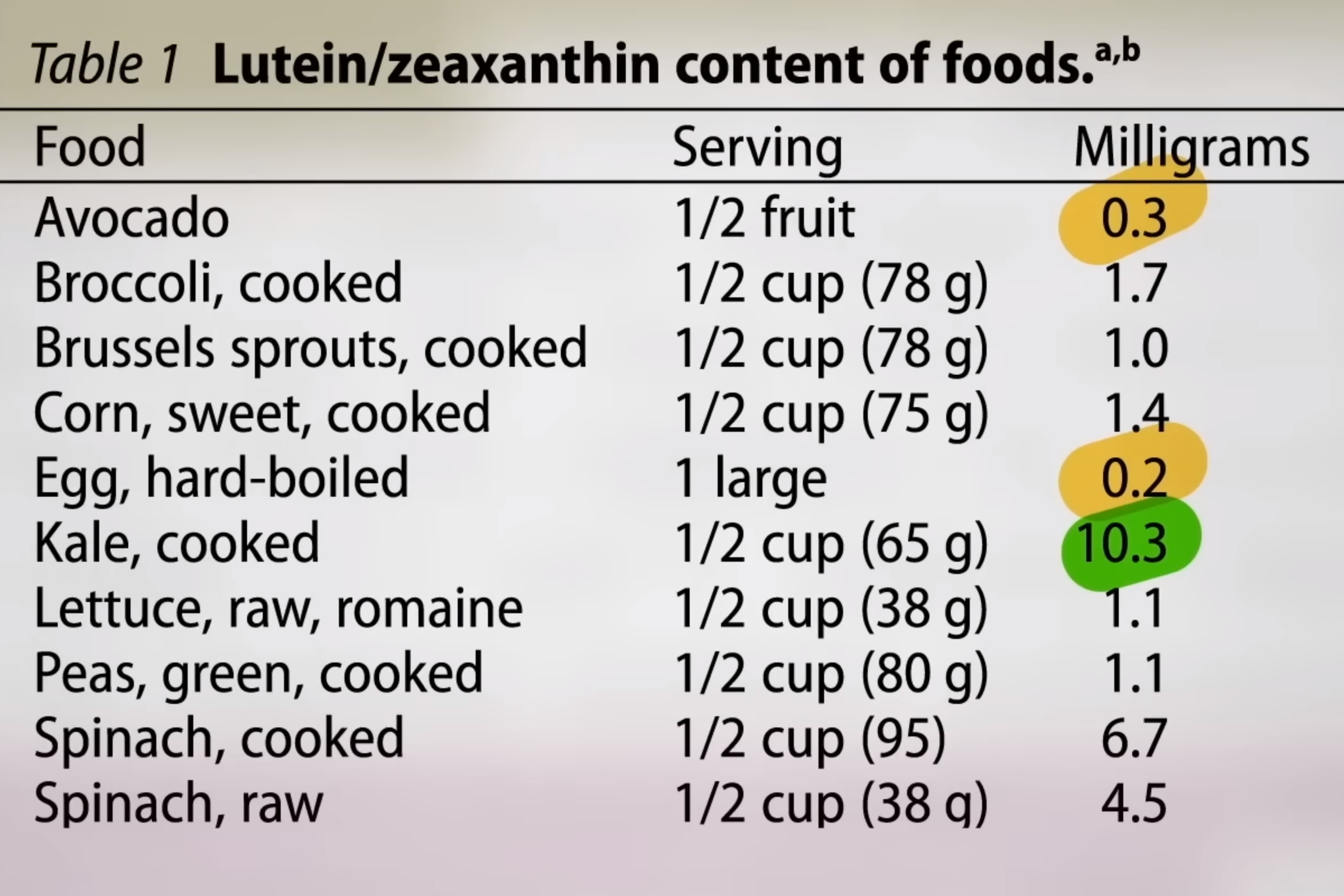The transcript below is an approximation of this video’s audio content. To see any graphs, charts, graphics, images, and quotes to which Dr. Greger may be referring, watch the video.
There’s an “extensive scientific literature [describing] the positive impact of dietary [plant compounds] on overall health and longevity.” “However, it is [only] now becoming clear that the consumption of diets rich in [plant foods] can influence neuro-inflammation [brain inflammation] leading to the expression of cytoprotective [cell protective] and restorative proteins.” Just “[o]ver the last decade, remarkable progress has been made to realize that oxidative…stress…and chronic, low-grade inflammation are major risk factors underlying brain aging.” So, no wonder antioxidant and anti-inflammatory foods may help.

“The brain is especially vulnerable to free radical attack [oxidative stress] due to its high fat content and [its cauldron of] high metabolic activity.” You don’t want your brains to go rancid. So, you’d think one of the major fat-soluble dietary antioxidants like beta-carotene would step in, but the major carotenoid concentrated in the brain is actually lutein; the brain just preferentially sucks it up.
Only Lutein
For example, look at the “oldest old,” like in the Georgia centenarian study. Recognizing that oxidation ”is involved in age-related cognitive decline,” they figured dietary antioxidants “may play a role” in its prevention or delay, so they looked at eight different ones: vitamin A, vitamin E, on down the list, and “only…lutein was significantly related to better cognition.” Now in this study, they looked at brain tissue on autopsy, but by then, it’s a little too late. So, how could you study the effects of diet on the brain while you’re still alive? If only there was a way we could physically look into the living brain with our own two eyes. There is! With our own two eyes.
Packed with Lutein
The retina, the back of our eyeball, is actually “an extension of” our central nervous system—an outpouching of the brain during development, and right in the middle there’s a spot. This is what the doctor sees when they look into your eye with that bright light. That spot, called the macula, is our HD camera, where you get the highest resolution vision, and it’s packed with lutein.
Better Cognitive Functioning, Neural Efficiency & Integrity
And indeed, levels in the retina correspond to levels in the rest of your brain, so your eyes can be a window into your brain. So, now, we can finally do studies on live people, to see if diet can affect lutein levels in the eyes, which reflects lutein levels in the brain, and see if that correlates with improvements in cognitive function. And indeed, significant correlations exist between the amount of macular pigment—these plant pigments like lutein in your eye—and cognitive test scores. You can demonstrate this on functional MRI scans, suggesting lutein and a related plant pigment called zeaxanthin, “promote cognitive functioning in old age by enhancing neural efficiency”—the efficiency by which our nerves communicate. Like, check out this cool study on white matter integrity using something called diffusion tensor imaging, which “provide[s] unique insights into brain network connectivity,” allowing you to follow the nerve tracts throughout the brain. And researchers were able to show enhanced circuit integrity based on how much lutein and zeaxanthin they could see in people’s eyes—”further evidence of a meaningful relationship between diet and neural integrity” of our brains, particularly in regions vulnerable to age-related decline.
Alzheimer’s
So, do Alzheimer’s patients have less of this macular pigment? Significantly less lutein in their eyes, significantly less lutein in their blood, and a higher occurrence of macular degeneration, where this pigment layer gets destroyed. The thickness of this plant pigment layer in your eyes can be measured, and may be a potential marker for the beginnings of Alzheimer’s. Let’s not wait that long, though. We know macular pigment density is related to cognitive function in older people; what about during middle age?
Protective
“One apparent consequence of aging appears to be loss of some aspects of cognitive control,” which starts out early, in ‘mid-adulthood,’ but not in everybody—suggesting maybe something like diet could be driving some of these differences. Here’s a measure of cognitive control, showing younger, on average, do better than older adults. But, older adults who have high macular pigment, lots of lutein in the back of their eyes, do significantly better. These results suggest that the “protective role of carotenoids like lutein within the [brain] may be evident during early and middle adulthood, decades prior to the onset of” more apparent cognitive decline later in life.
Sensitive to Diet
You can take 20-year-olds and show superior auditory function in those with more macular pigment in their eyes. Look: “The auditory system, [our hearing,] like the rest of the central nervous system, is ultimately constructed and maintained by diet, and it is therefore, not surprisingly, sensitive to dietary intake throughout life”—all the way back to childhood.
Higher macular pigment is associated with higher academic achievement among schoolchildren. You can look into a kid’s eyes and get some sense of how well they may do in subjects like math and writing. “This finding is important because macular [lutein] is modifiable and can be manipulated by dietary intake.”
Superstar Lutein-packed Foods
Okay, okay, so where is lutein found? The avocado and egg industries like to boast about how much of these macular pigments they have in their products, but the real superstars are dark green leafy vegetables. A half-cup of kale has 50 times more than an egg, a spinach salad, or a 50-egg omelet.
And the earlier the better. Pregnant and breastfeeding women should definitely be checking off my Daily Dozen greens servings. But it’s also apparently never too late. While some age-related cognitive decline is to be expected, these effects may be less pronounced among those eating more green and leafy veggies.




